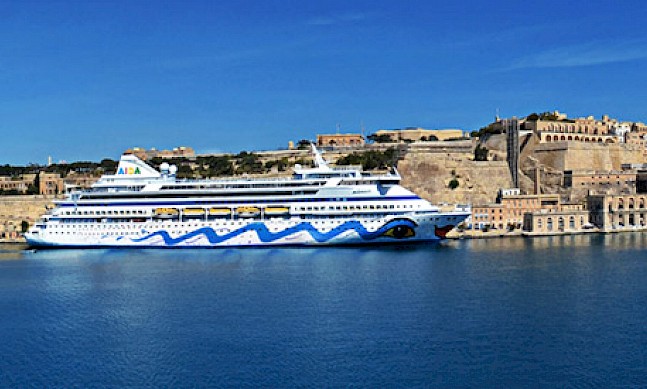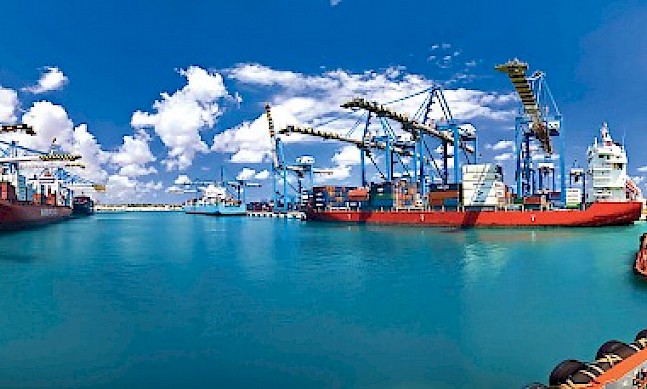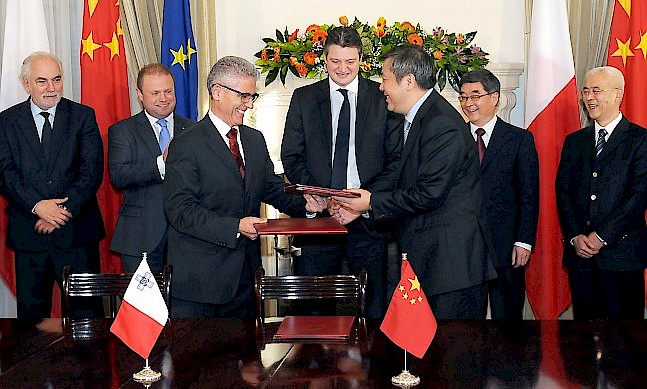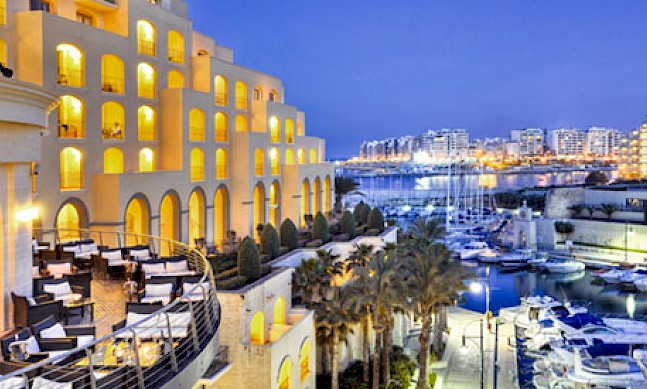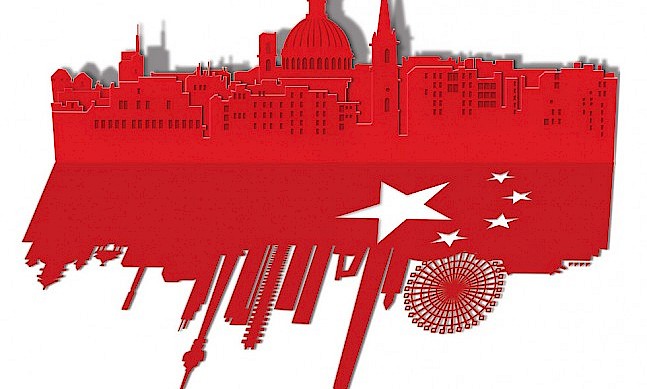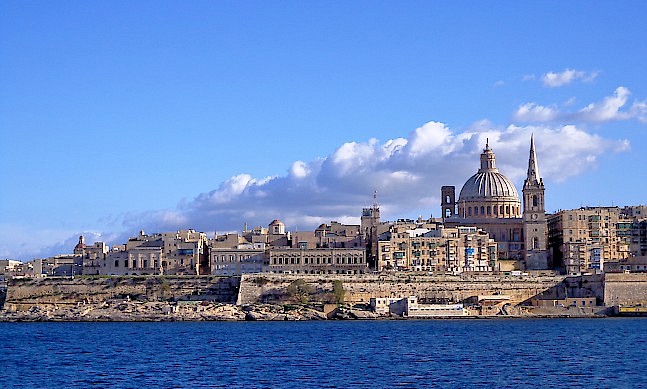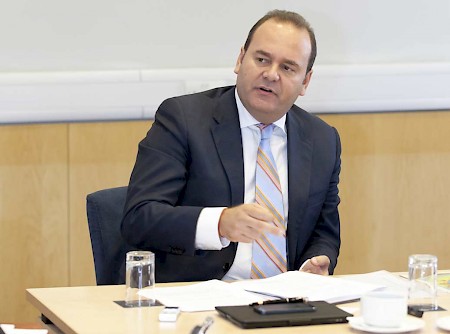
Despite being the EU’s smallest state, Malta has big plans for investment, trade and the economy. Minister Christian Cardona sat down with The Report Company to outline just a few of them, and talk about the scope for greater Chinese involvement in his country’s growing economy.
The Report Company: How would you assess the relationship between China and Malta?
Dr. Christian Cardona: China and Malta have been friends now for over 40 years. It is fair to say that Malta under this present government has excellent ties with China. We are very proud of the strength of the relationship that has been built over the past four decades. In the past year alone a Chinese multinational has stepped forward to invest in our national energy company, Enemalta. This financial injection of course will be very helpful for Malta while China will have a new base for developing trade across the European Union. It will use Malta as a gateway to the European mainland, to North Africa and the Middle East.
There have been other developments too, especially in the cultural field. Malta and China have signed a cultural agreement covering a period of 2014 to 2018, when Malta will be holding the title of cultural capital of Europe. The Chinese government has recently also invested €4.5 million in the upgrading of a project in Santa Lucija, the Chinese Garden of Serenity. The relationship between our two countries has progressed and matured.
TRC: What are the main priorities and challenges for the ministry at present?
CC: We’ve been working on the creation of employment within foreign direct investment projects. Another important issue being addressed is the reduction of administrative burdens for enterprises operating in Malta. We have to make it possible for enterprises to carry on with their business without unnecessary administrative hurdles. We have some highly successful industries in Malta, including financial services, online gaming, manufacturing, tourism, aviation, life sciences and precision engineering and we need to ensure we keep them strong and competitive while at the same time developing new sectors in niche areas so that Maltese industry remains competitive through innovation.
TRC: What scope is there for greater Chinese involvement in Malta’s economy?
CC: Malta is very open to foreign investment. We have advantageous tax schemes that encourage the setting up of new businesses here. Companies have also found that they can develop well in Malta.
“Malta is very open to foreign investment. We have advantageous tax schemes that encourage the setting up of new businesses here. Companies have also found that they can develop well in Malta.”Post This
We have had a special relationship with China for a long time but I think there is now scope for China to do more business in Malta. We welcome Chinese investment and expertise. China will be playing a very important part in our energy sector and now we should be on the lookout to attract Chinese financial institutions to Malta to provide financial services. In such a strategically placed location Malta could offer itself also as a gateway for Chinese investment in the greater region.
TRC: Which other markets are you looking at besides China?
CC: Our major trading partners have always been countries in the European Union, but I think that the new government has shown and has sent very clear signals that we are attracting investment from the US and Canada, Russia and also North Africa, despite a currently difficult climate in that region.
We believe in strengthening our domestic market within Europe, and we are working hard on getting the message across that our real competitors nowadays are not our friends in Italy or in Germany. The European Union does not exist in a vacuum. We live in a globalised economy and we need to make sure there are no measures that could make our entrepreneurs less competitive than they should be. I think we need to re-address a lot of issues within the European Union, in particular harmonisation and the regulatory framework.
TRC: Which sectors would you like to promote in order to make Malta a more balanced economy?
CC: In business, the most dangerous position to have is a stationary one. The tourism industry in Malta has been careful to avoid this and we are constantly trying to reinvent ourselves. We receive foreign direct investment into a number of sectors, including manufacturing, digital games, printing, aviation, ICT, environmental waste management, pharmaceuticals, i-gaming, industry services, media training and precision engineering. It’s a variety of themes.
TRC: What makes Malta attractive as a place to do business?
CC: Companies know Malta as a good place to do business. We are a safe country with political stability. We use the English language. We have a very responsible and reputable yet flexible regulation in banking, financial services, shipping and aviation.
“There is now scope for China to do more business in Malta. We welcome Chinese investment and expertise. China will be playing a very important part in our energy sector and now we should be on the lookout to attract Chinese financial institutions to Malta to provide financial services.”Post This
TRC: What is your position in terms of modernising Malta’s economy?
CC: We have been developing a ‘Digital Malta’ strategy, which will cover all aspects of Maltese life and ensure nobody gets left behind in the digital age. The reduction of the digital divide is an important focal point in this argument, and driven the encouraging results achieved in the ICT sector so far, Malta’s vision for 2014-2017 will revolve around building a digital economy which is robust, resilient, modern, very global and which will foster sustainable economic growth.
We will position Malta to be amongst the best in Europe, spearheading initiatives to create the ideal entrepreneurial climate, leveraging investment in technologies and human resources. This will in turn translate into value. This is what we want: tangible results that give added economic opportunities and improve the social wellbeing of our citizens.
Despite our small size and also in spite of our limited natural resources, you have to consider our talented and dynamic workforce. As we have seen over the past few years, within ICT and other sectors, human resources are Malta’s major asset and that will enable our government’s vision. Within this context a digital economy within a digital society is Malta’s present and future.
TRC: How would you like Malta to be perceived internationally?
CC: I think that we should be perceived as a centre of excellence. One of our targets is to focus on what really can be successful on an island like ours, which is geographically placed in the centre not only of the Mediterranean but of three major continents, Europe, North Africa and the Middle East, and of the Europe-Asia route. We have had years of experience now as a sovereign nation. We are not a country in its infancy. We have matured; we have had different legislatures, different governments and different administrations and so now we are positioned to focus on our niche markets. We have to work on those markets and excel in them and make sure we create a hub of excellence. This is the platform that we need to brand our country on, and I hope this is the way the international community will perceive us.
“We will position Malta to be amongst the best in Europe, spearheading initiatives to create the ideal entrepreneurial climate, leveraging investment in technologies and human resources. This will in turn translate into value. This is what we want: tangible results that give added economic opportunities and improve the social wellbeing of our citizens.”Post This
TRC: What would be the main goals and objectives you wish to achieve during your time in this role?
CC: We want to create more wealth which is distributed more equally and we want to create more quality jobs. Malta has one of the lowest rates of unemployment in Europe however we want to add value to that by assuring that it’s not a question only of jobs but of high quality jobs which add value to our economy.
We need to ensure that our industry is competitive and so we are working on other issues. For example, we need to have a stable provision of energy at competitive rates, we need to ensure that there are incentives for investment; we need to ensure that there is an efficient and reasonable transport link between Malta and the other regions and we need to have a skilled labour force with competitive wages.
There is a tendency in Mediterranean countries for internationalisation by SMEs to be done in an unstructured manner. This government is willing to rectify this and help our firms to expand internationally and make local firms more export-oriented. Our intention is to work relentlessly to attract FDI and talent to Malta and at the same time help local companies who want to internationalise. And so I think that our government has a realistic plan to do this. I think it’s already materialising. The statistical evidence shows that the private sector is incentivised. It’s creating more jobs at the moment, at the rate of 19 jobs per day for the last ten months which is a good statistical number for us.
We are also discussing access to finance; ensuring that there is enough venture capital, crowd-funding, and business angels on the island to service SMEs. We also want to reduce administrative burdens. We want to simplify bureaucracy tremendously. We need to increase our competitive edge. There are a myriad of options for any business investor to pick and choose the best, most compatible place and so we need to tick all the right boxes. We need to show that we here can offer it all.
TRC: What is your outlook for the future of the relationship between Malta and China within the spheres of investment, business and trade?
CC: We have a workforce that is agile, we have legislative agility, we are flexible and we are eager to work. We want to see more Asian businesses come to Malta and create jobs. We want to see them succeed with their owners, spreading the message not only in China but in other countries that Malta is the place to be.
We would like to see our countries building bridges, learning from each other and exchanging information. I think we have some interesting challenges and a bright future.


